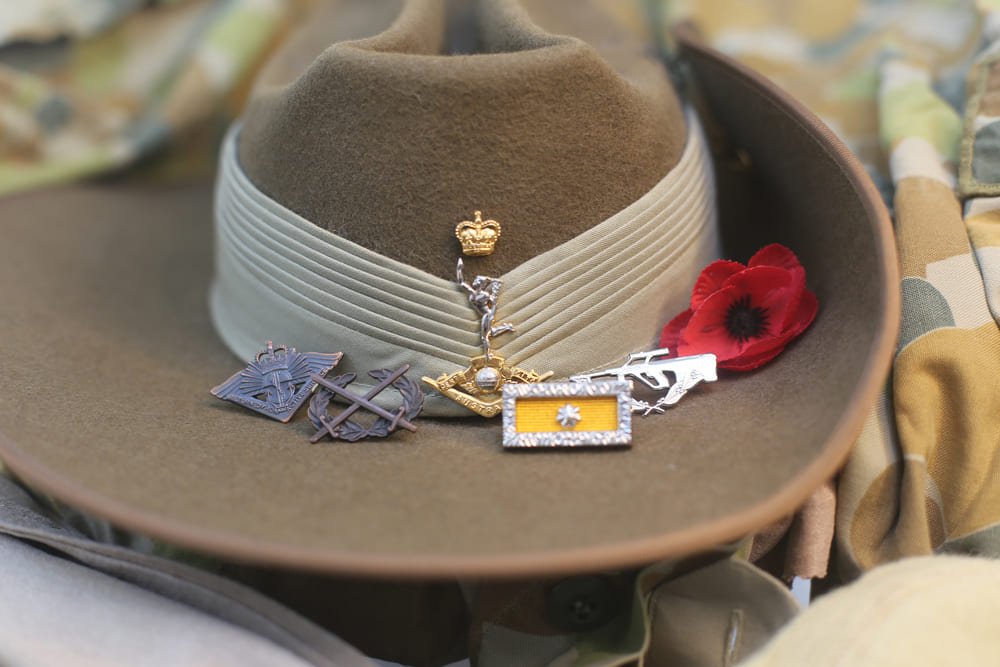It is important to understand that, unlike ADF schemes, civilian life insurance policies may include limitations and exclusions that can affect veterans in particular. Pre-existing injuries or illnesses, particularly those obtained during warlike service, can limit eligibility or prevent claims from being paid.
These restrictions often affect veterans more than the general public, and understanding these rules early and how they interact with any DVA entitlements ensures that you and your family remain protected when military cover ceases.
Types of life insurance
In Australia, life insurance has shifted from a product you purchased separately to one that is often included in superannuation. Most superannuation funds now provide automatic basic cover, though the type and level of insurance can vary between funds.
For Australian Defence Force (ADF) members, cover through schemes such as ADF Super, MSBS, or DFRDB is linked to active service. Once you are discharged, this cover may reduce or end entirely.
Understanding the forms of insurance cover available helps you identify what protection you have and whether you need additional insurance after leaving the ADF.
Life cover (death benefit)
Life cover provides a lump sum payment to your beneficiaries if you pass away. It gives your family financial stability and helps them meet household costs, debts, and other commitments.
All life insurance policies include terms and exclusions that define when a death benefit will or will not be paid. Understanding these conditions helps ensure you know what your policy covers and where limitations may apply.
The amount of life cover available depends on the policy or scheme. For standard life insurance policies, you choose the level of cover when applying, and premiums are calculated based on that amount. For cover held through superannuation, the level of insurance is usually set by a default formula linked to age and account details. You can increase, reduce, or cancel this cover, but default levels may not match your financial needs. This can leave gaps in protection or cause unnecessary premiums to be deducted from your super balance.
Total and Permanent Disability (TPD) cover
Total and Permanent Disability (TPD) cover provides a lump sum payment if you become permanently disabled and cannot return to work. It helps cover long-term living expenses, medical costs, and lifestyle adjustments that may be needed after a serious illness or injury.
The amount of TPD cover available depends on the policy or scheme. For standard life insurance policies, you choose the level of cover when applying, and premiums are calculated based on your age, health, and risk factors. Each insurer defines “permanent disability” differently. Some policies pay a benefit only if you cannot work in any occupation suited to your education and experience, while others apply the test to your own occupation. Understanding this distinction is important, as it can affect whether a claim is approved.
All TPD policies include exclusions that define when a benefit will not be paid. Reviewing these conditions ensures you understand how your cover works and what situations may fall outside the insurer’s terms.
As a veteran, this can be a complex area. Some conditions that arise during or after service may not be covered by civilian insurance policies. This topic is discussed in more detail under Are there restrictions on life insurance for veterans? When you discharge, if you have a health condition, seek assistance in understanding whether it may be recognised under your DVA entitlements, or if additional insurance is needed to maintain ongoing protection.
Income Protection
Income protection replaces a portion of your income (often 70–85%) if illness or injury prevents you from working for an extended period. Most policies include a waiting period of 30 to 90 days before benefits begin, so you need to plan how household expenses will be met during that time. Income protection is particularly important once you leave the ADF, as it provides cover if you are unable to work in the civilian workforce due to injury or illness, whether from a car accident, sport, or other health issues.
By contrast, invalidity pensions are not an insurance product you purchase but a benefit available while serving if you are medically discharged. These pensions apply when you are assessed as unable to continue serving due to illness or injury and can provide long-term or permanent financial support after you leave the ADF. However, if you discharge for reasons other than medical incapacity, invalidity benefits are not available. For ongoing risks in civilian life, income protection is the safeguard to consider.
When applying for cover after discharge, pre-existing health conditions can affect eligibility and premiums. If you have been medically discharged, an insurer may decline cover, increase costs, or exclude certain conditions. It is important to review policy terms carefully and understand how your DVA entitlements apply to existing conditions before taking out new cover.
All income protection policies include exclusions that determine when benefits will not be paid. As a veteran, you will need to ask detailed questions about how your service history may affect income protection cover. Insurers assess risk differently for veterans, and conditions linked to service may fall outside standard definitions of cover. Always request confirmation in writing so that you understand how your policy applies before proceeding.
Trauma (critical illness) cover
Trauma cover, also known as critical illness cover, provides a lump sum payment if you are diagnosed with a listed serious medical condition such as cancer, stroke, or heart disease. The benefit helps cover treatment costs, living expenses, or other financial commitments during recovery.
Definitions of “illness” and “disability” vary between insurers, and not every policy includes the same conditions. Some superannuation funds include limited trauma cover, but most require a separate, standalone policy.

Why you might need to consider life insurance after discharge
It is easy to delay thinking about life insurance or assume that it can wait until later. However, once you leave the ADF, the safety nets that protected you during service no longer apply in the same way. Reassessing your situation and understanding how life insurance fits into your financial planning helps ensure ongoing security for you and your family.
Life insurance after discharge provides continuity of support. Without it, your family may need to rely on savings or other income sources to meet daily expenses. Reviewing your options before leaving the ADF allows you to compare policies, understand exclusions, and confirm that you can obtain the level of cover you need. Taking these steps early can reduce the risk of gaps in protection and help ensure your family remains financially stable in the event of the unexpected.

Are there restrictions on life insurance for veterans?
Life insurance can be more complex for veterans than for the general public. Once you leave the ADF, the cover and conditions that once applied to you change, and civilian insurers assess risk differently. Understanding these rules before discharge helps you maintain continuous protection and avoid gaps in cover that could leave your family exposed.
Insurers may have other restrictions; it’s best to consult the Product Disclosure Statement
Pre-existing conditions
A key issue is how insurers treat pre-existing conditions. If a health condition began while you were serving and you did not hold a civilian life insurance policy at that time, the insurer may classify that condition as pre-existing. This means that if it later contributes to death or disability, a claim may be denied. For many veterans, this creates a major challenge because service-related conditions are common and may appear years after discharge.
Ideally, pre-existing conditions from your ADF service would be covered by DVA through care, compensation, and/or ongoing benefits. However, this would require that you have submitted claims for these issues and that they are accepted by DVA.
Acts of war
Civilian life insurance policies typically exclude claims connected to warlike activity. This can be a problem for veterans, where death or disability is found to have occurred as a result of an injury or condition suffered during a deployment to a warlike zone.
However, if you have disability or injuries sustained during service, and these conditions were accepted by DVA, other death benefits may be available. If you were already in receipt of a benefit through DVA or your super scheme, then your family may be eligible for a payout in the event of your death.
Life insurance options for veterans
Life insurance options and cover can be limited for veterans after discharge due to the restrictions on pre-existing conditions and acts of war. While you can usually apply for the same policies available to the general public, you may face higher premiums, exclusions, or additional conditions.
To help with higher premiums, the Department of Defence offers the Life Insurance Assistance (LIA) benefit. The support helps offset the higher cost that may result from an insurer assessing your service history as a risk factor, making cover more accessible.
National Service Financial can help you understand your current position, identify risks, and explore available options. Seeking DVA-specific financial advice before applying ensures that your cover provides real protection and that you are not paying for benefits you may already have through existing arrangements.
If life insurance options are limited or not available to you due to your military service, it’s worth considering whether there are DVA benefits or compensation available instead.
Does your Military Super include Life Insurance?
Australian Defence Force (ADF) Super
When ADF Super was introduced on 1 July 2016, it was paired with a separate scheme called ADF Cover. ADF Cover is a statutory benefit, not an insurance policy. It provides death and invalidity benefits at no cost to serving members under legislation administered by the Commonwealth Superannuation Corporation (CSC). This benefit applies only while you are actively serving in the ADF. Once you discharge, ADF Cover ends, and other forms of protection need to be arranged.
After discharge, ADF Super members may receive automatic lifePLUS Protect cover, insurance held within the ADF Super fund. This includes Death and Total and Permanent Disability (TPD) cover, and it begins on the day after discharge if the eligibility requirements are met. Premiums are deducted from your ADF Super account balance, which means they reduce your retirement savings over time.
If you decide not to maintain lifePLUS Protect, you may no longer have Death or TPD cover once you have left the ADF. In that case, consider arranging insurance through another superannuation fund or a retail policy to maintain financial protection for your family.
Military Superannuation and Benefits Scheme (MSBS)
Under the Military Superannuation and Benefits Scheme (MSBS), members do not hold a separate life insurance policy. Instead, death and invalidity benefits are provided as part of the defined benefit structure of the scheme. The amount your family receives depends on when the death or disability occurs and your service.
In all cases, MSBS death benefits are formula-based entitlements governed by scheme rules, not insurance products.
Defence Force Retirement and Death Benefits Scheme (DFRDB)
Under the Defence Force Retirement and Death Benefits Scheme (DFRDB), members do not hold a separate life insurance policy. Instead, death and invalidity benefits are provided through the scheme’s defined benefit structure. The amount paid depends on when the death occurs and the member’s service status at that time.
Death benefits may be provided by DVA in some circumstances
While life insurance and superannuation can provide financial protection, it is also important to understand how Department of Veterans’ Affairs (DVA) benefits fit within your overall safety net. DVA death benefits are not life insurance, but they can offer financial support to your family if your death or disability is accepted as being related to service. Understanding how these payments interact with your superannuation and insurance cover ensures your family receives the full support they are entitled to without relying on overlapping or uncertain benefits.
If your death is recognised as service-related, your spouse, partner, or dependants may be eligible for financial support through DVA. This can include:
- A reversionary pension, such as the War Widow(er)’s Pension, which is tax-free and indexed annually.
- A Partner Service Pension, providing ongoing income support based on age or dependency.
- A bereavement payment, generally paid as a lump sum equal to several weeks of the veteran’s pension, to assist with immediate household expenses.
Together, DVA benefits and life insurance can provide complementary support, one based on service-related entitlements, and the other on personal or superannuation-based cover. Reviewing how these systems work together helps ensure your family has both immediate and long-term financial stability.

The Impact of not having adequate life insurance for your family
While a young, single person may need minimal cover, if you have a partner, children, or a mortgage, it’s important to consider how your family would manage financially if your income were to stop. Having the right level of cover provides peace of mind that your family can maintain stability and meet ongoing expenses if the unexpected occurs.
Without adequate cover, families often face both emotional and financial strain. Even when insurance is in place, claims can take time to process, and paperwork must be completed before funds are released. During this period, bills still need to be paid, and everyday costs can add pressure at an already difficult time.
Practical steps can help:
- Keep policy details, account numbers, and contact information in a centralised location.
- Ensure your family knows who to contact if a claim needs to be made.
- Build an emergency fund or maintain savings that can cover household expenses for several weeks or months.
- If you are the person processing a claim, keep detailed notes and copies of all relevant documentation, including emails and telephone conversations. This record can help track progress and resolve any delays with the insurer.
Planning ahead in this way reduces stress and ensures your family can manage short-term expenses while waiting for insurance or other benefits to be paid.
Life Insurance for ADF Veterans: Protecting what matters most
Life insurance for ADF veterans is about more than policies and premiums; it is about protecting the people who matter most and ensuring lasting financial security. Understanding how your life insurance, superannuation, and DVA entitlements work together helps you identify your risks and where extra cover may be needed.
Taking time to review your current position allows you to confirm whether you already have life insurance, identify any overlapping policies that reduce your superannuation savings, and close any gaps that could leave your family exposed. Aligning your cover with your income, assets, and responsibilities ensures your loved ones have support both now and in the future.As a veteran-focused financial adviser, National Service Financial can help you assess your financial position, clarify your entitlements, and guide you through the options available. With the right plan in place, you can be confident that your family’s financial wellbeing is protected, whatever lies ahead.






